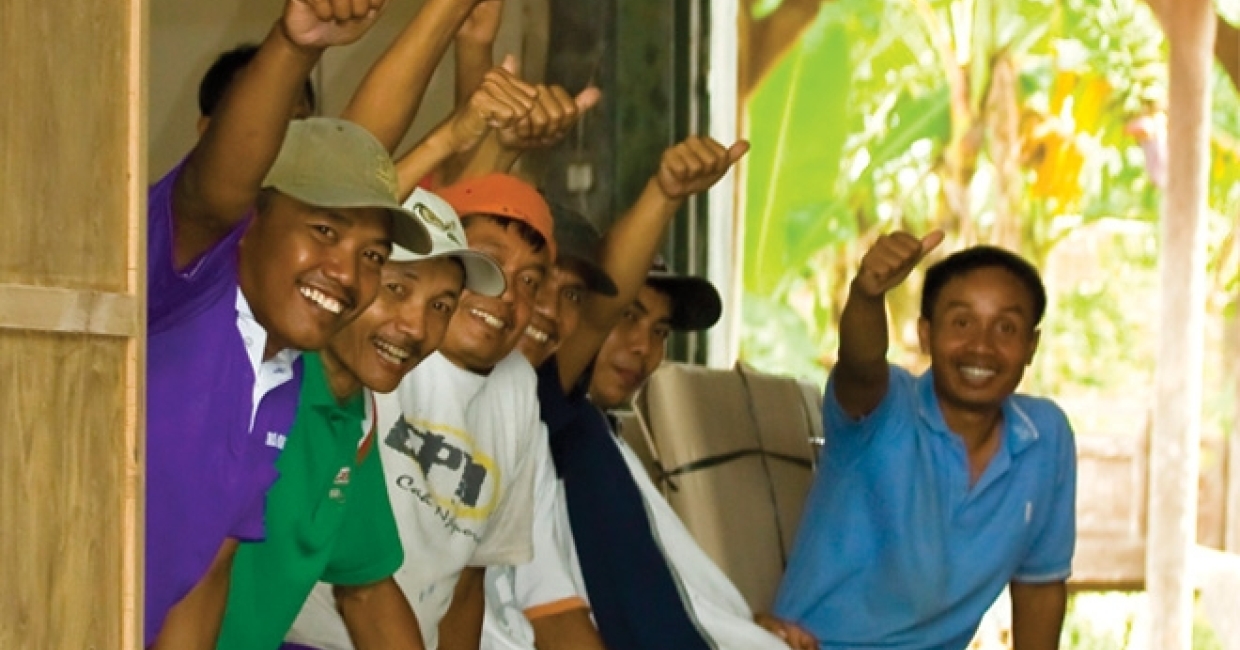During his travels across the striking landscape of Indonesia, James Tatham was taken by the aesthetic pull of the country, and sought in some way to replicate its appeal back in the UK. As a result, in 2011 the Ombak brand was born, comprising reclaimed teak furniture products symbolic of Indonesian culture. Victoria Noakes spoke to James to discover more...
After spending most of his time whilst in Indonesia on the relaxed and underdeveloped island of Lombok – home to the Sasak population and with striking beaches and impressive waves – keen surfer James Tatham found the inspiration for internet-based reclaimed teak furniture brand, Ombak.
“I have probably spent about a year in total in Indonesia. Everything about the country is incredible – the noise, the smell of clove cigarettes, the mix of cultures and the instant hospitality which makes you feel at home,” James explains.
“Whilst there, I was looking for a name for my future business, and straight away ‘ombak’ grabbed me – it means wave in Indonesian. Being an archipelago, the ocean is sacred to all Indonesians, and to me as a surfer it carried special meaning.”
Ombak imports premium Indonesian furniture, all made from reclaimed teak – solid teak that has been recycled from over 100-year-old Dutch colonial buildings around the country which, due to modernisation, have now been replaced with bricks and mortar.
Products in the Ombak range include dining, coffee and a nest of tables, banana chairs and a table and bench set, which are all named after places in Lombok. The company also offers the option of customisation at no additional cost – believing that the consumer should not have to pay for the extra privilege of a unique item – with non-stock items also being made to order. Each piece is in itself original, and is a combination of designs by James and Ombak’s workshop manager.
A high-end product, reclaimed teak posesses a large amount of character due to the nature of the grain, the deep and lustrous finish and the tactility of the wood. With teak being a slow-growing hardwood, reclaimed teak has matured for many years, resulting in a rich colour, and the natural oils present in the wood make it almost completely stain resistant. In addition, by its nature, reclaimed teak is 100% sustainable.
“Reclaimed teak really is a unique wood, and every single piece is different due to its previous use. The chair and table you are sitting at could have been part of a Government building that has seen crucial decisions being made, or a traditional house in which generations of Indonesian families have lived,” says James.
“The demand for reclaimed teak is in its infancy, but is certainly gathering momentum. People love it when they come across it– but the problem is that it isn’t that well known. It is mainly sold by high street retailers in South-east England. However, due to a push on online marketing and word of mouth, reclaimed teak is on the up.”
Ombak is partnered with one of the best factories in Indonesia, located in Jepara, Java, and is the sole importer of its products to the UK. Known as the ‘furniture triangle’, the area of Jepara is where some of the finest furniture in the world is made.
In order to source premium products at reasonable prices, and to ensure that the manufacturing process is undertaken in healthy and positive working conditions, James visits the Indonesian workshops personally, and has cultivated a positive relationship with the workers. This allows Ombak to manage quality control from Indonesia right through to customer delivery in the UK.
“The significance of visiting the workshops cannot be overestimated. I have seen first hand its day-to-day running, the happy people who work there and the environment in which they work – plus it helps to get on well with their boss! I feel a natural affinity towards the Indonesian people, and it is important to me to be able to make sure that there is no mis-treatment or exploitation in the workplace,” James states.
Being an online business not only allows Ombak to keep its overheads low, enabling it to offer the customer the best price it can, but it cuts out the middleman, ensuring that the workers in Indonesia recieve fair pay. The company is committed to ethical manufacture, paying a fair price for its goods, and only using reclaimed wood. Crucially, using reclaimed wood for the production of furniture can help reduce the carbon footprint by 80% compared to harvesting and processing new wood.
Ombak recently launched its new website, and is looking to expand its product range imminently, with the sub-brand Ombak Stone – comprising unusual stone baths and sinks. What is more, the company is looking to dabble in the outdoor furniture sector next year.
Ombak clearly holds a unique place in the furniture marketplace, providing an original and fully sustainable product offering at a competitive price, as well as a refreshing alternative to mainstream purchasing. Ombak products boast a rich heritage, allowing the customer to bring a little piece of Indonesian culture and history into their own home.







